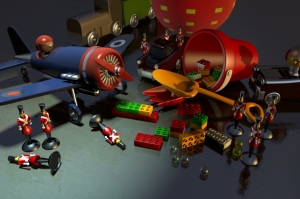Importance of Old Games
 Growing up, we never thought about how the games we played were helping with our development, we just had fun and played. As we see our children eschewing less technical games favoring video games and the like, it makes me wonder how these old games, in fact, helped with our development. What I found out was fascinating.
Growing up, we never thought about how the games we played were helping with our development, we just had fun and played. As we see our children eschewing less technical games favoring video games and the like, it makes me wonder how these old games, in fact, helped with our development. What I found out was fascinating.
For example, jumping rope not only helps with coordination (counting or singing & jumping at the same time), it helps with heart health, alertness and mental focus. It also helps with spatial awareness as it aids the vestibular system, and the rhythmic aspects can develop a dialogue internally that helps to establish basic reading skills. The cardiovascular activity contributes to balancing the body’s chemistry and organ systems. It can also help to reduce stress. Who knew? (I know I am out to purchase an adult size jump rope for myself as the kids have smaller ones.)
How about other games? What are their claims to fame? As children age, they require more complexity in their play, so games can become more and more involved. Refer to the post on play for the significance of open-ended play.
Another physical game with many benefits is hopscotch. Surprisingly, hopping helps with crossing the midline that in turn leads to left/right brain tasks such as creativity, reasoning and self-regulation. The body control required with NOT stepping on the lines helps with self-control, and the stop & start or the body rhythm assists in picking up speech patterns for language acquisition and aids memory.
On a more sedate scale, playing cards provides many benefits to children. From War to Go Fish to Crazy Eights to Rummy to Cribbage, a child is learning how to take turns, store and retrieve information, strengthen their memory, solidify basic math concepts, enhance dexterity and fine motor skills, learn how to read body language and with cribbage, learn some basic strategy. Also, playing cards is portable, transferable, fun and inclusive.
Other mental acuity games involve; I Spy, Boggle, Who am I?, Checkers and Chess. Fine motor skill development games include; Marbles, Jacks & Dominoes. More physical games involve; Hide and Seek, Red Rover, Red Light/Green Light, Dodge Ball, Tag, Cops & Robbers, and Kick the Can.
So, let’s get our children together, reminisce about old times and play some games. It’s lots of fun and good for all of us.

